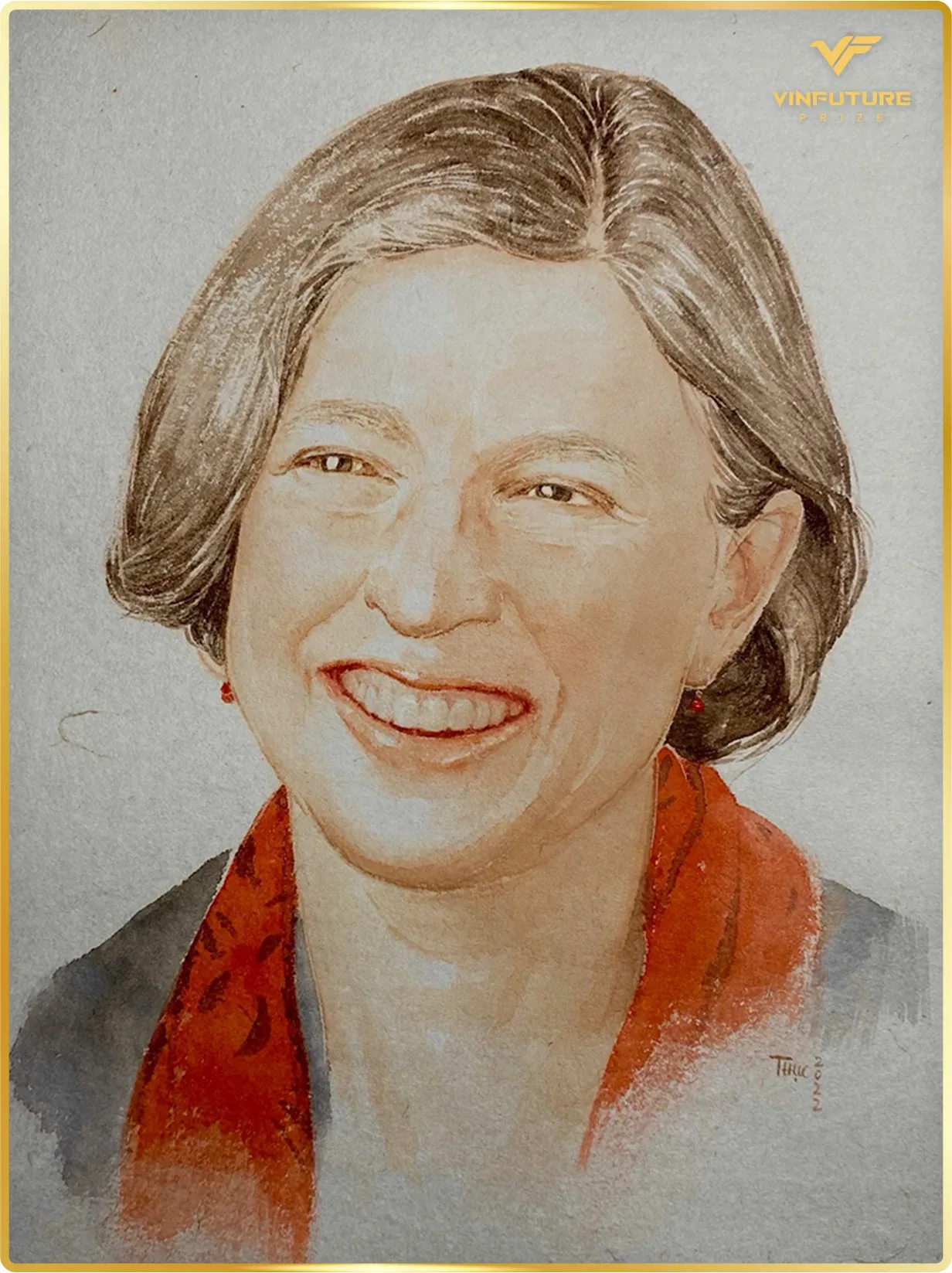BIOGRAPHY
Affiliation at the time of the award: Department of Plant Pathology and the Genome Center, University of Califonia, Davis, University of Califonia, Berkeley, the Joint BioEnergy Institute, Emeryville CA, Environmental Genomics and Systems Biology Division, Lawrence Berkley National Lab
Pamela Christine Ronald is a United States researcher recognized for studies in infectious disease biology and environmental stress tolerance. She is a professor in the Department of Plant Pathology and the Genome Center at the University of California, Davis and a member of the Innovative Genomics Institute at the University of California, Berkeley. She also serves as Director of Grass Genetics at the Joint BioEnergy Institute in Emeryville, California and a Faculty scientist in the Environmental Genomics and Systems Biology Division, Lawrence Berkley National Lab.
Ronald graduated from Reed College with a B.A. in Biology, from Stanford University with a M.S. in Biology, from Uppsala University with a M.S. in Physiological Botany and from UC Berkeley with a Ph.D. in Molecular and Physiological Plant Biology. She was a postdoctoral fellow in plant breeding at Cornell University and joined the faculty of UC Davis in 1992
Ronald was named a National Geographic Innovator and one of Grist’s 50 innovators who will lead us toward a more sustainable future. With her colleagues, she received the USDA National Research Institute Discovery Award and the Tech Award for innovative use of technology to benefit humanity. She was named one of the world’s most influential scientific minds by Thomson Reuters and one of the world’s 100 most influential people in biotechnology by Scientific American. In 2012, she received the Louis Malassis International Scientific Prize for Agriculture and Food. In 2019, she received the American Society of Plant Biologists Leadership Award. In 2020 she was named a World Agricultural Prize Laureate by the Global Confederation of Higher Education Associations for Agricultural and Life Sciences. In 2022 Ronald was named the UC Davis Faculty Distinguished Researcher and awarded the Wolf Prize in Agriculture.
She is a member of the National Academy of Sciences, a member of the American Academy of Arts and Science and the Royal Swedish Academy of Agriculture and Forestry.
She is coauthor with her husband, Raoul Adamchak, an organic farmer, of “Tomorrow’s Table: Organic Farming, Genetic and the Future of Food” which was selected as one of the 25 most powerful and influential books with the power to inspire college readers to change the world. Her 2015 TED talk has been viewed more than 2 million times.
SUMMARY OF WINNING ENTRY
The Special Prize dedicated to “Female Innovators” was awarded to Professor Pamela Christine Ronald for her breakthroughs in isolating the Sub1A gene which facilitated the development of submergence tolerant rice varieties, helping feed millions of people in South and Southeast Asia.
Pamela C. Ronald is an outstanding plant and microbial geneticist. Her contributions to science include:
– Isolation, in 1995, of the rice XA21 gene that is critical for the innate response of plants, and confers resistance to the bacterial pathogen Xanthomonas oryzae pv oryzae (Xoo). XA21 was the first member of this important class of immune receptors to be identified. Subsequent discoveries in flies, humans, mice, and Arabidopsis revealed that animals and other plant species also carry membrane‐anchored receptors with striking structural similarities to XA21 and that these receptors also play key roles in the immune response. This work created platforms necessary for subsequent isolation of the Sub1A gene, central to the VinFuture Prize. Ronald also identified the microbial ligand recognized by XA21, which is a sulfated peptide called RaxX.
– Demonstration of the molecular basis for submergence tolerance in rice. After teaming up with David Mackill who had demonstrated the importance of the locus Sub1 to tolerance to complete submergence, she and her collaborators were successful in the isolation of the Sub1 genetic region, which they showed encodes three ethylene-responsive factor (ERF) transcriptional regulators. Ronald’s team demonstrated that one of these genes, that they designated Sub1A, was upregulated rapidly in response to submergence and conferred robust tolerance to prolonged submergence in transgenic plants. This key discovery facilitated the breeding of submergence tolerant rice by researchers at the International Rice Ressearch Institute. The new “Sub1” varieties provide a 60% yield advantage compared to conventional rice varieties following submergence.
SCALE OF IMPACT
Ronald’s laboratory led the positional cloning of the Sub1 QTL, revealed that it carried three ethylene response transcription factors and demonstrated that one of the ERFs, which she designated Sub1A, was upregulated rapidly in response to submergence and conferred robust tolerance to submergence in transgenic plants. This work revealed an important mechanism with which plants control tolerance to abiotic stress and set the stage for in-depth molecular-genetic analyses of Sub1A-mediated processes with her collaborator. Sub1 rice has reached over six million farmers as of 2017.
MEANINGFUL CHANGE
The International Rice Research Institute (IRRI) and collaborators generated and released several Sub1A varieties (developed through marker-assisted breeding) in seven countries including India, Indonesia, Vietnam and Bangladesh, where submergence destroys four million tons of rice each year, enough to feed 30 million people.








